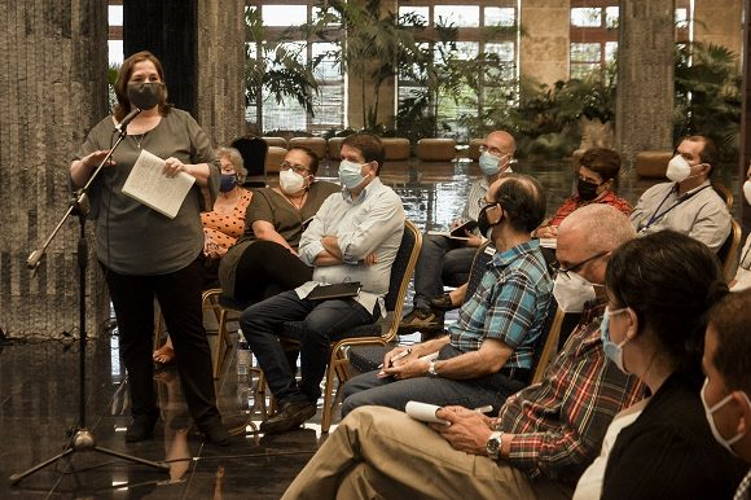HAVANA, Cuba.- The echoes of the study of the preliminary draft of the Law of Social Communication, which according to Castro’s propaganda should totally transform the work of the Cuban press, have not yet died out, and evidence has come to the fore that indicates that the precepts of that Law could remain in the discourse, because in practice anomalies such as government secrecy, journalists’ lack of access to sources of information, as well as the scant interest of many official entities in responding to the population’s claims, continue to manifest themselves. .
In its edition of last August 5, the Newspaper Granma publishes a summary of the institutional responses to the letters sent by the population through this media outlet.
The first thing that is obvious is that of 84 letters published by that newspaper until the end of the first half of this year, a total of 36 (43%) have not been answered by government entities. A good part of these complaints from the population have already been in the hands of those who have the duty to respond to them for more than 60 days.
The list of entities that have remained silent in the face of citizen claims covers almost all levels of management, and a good number of sectors of the economy: the Ministry of Agriculture, the Municipal Assemblies of People’s Power, Commerce companies, the Provincial Directorates of Physical Planning, the Cuban Post Office, the Ministry of Education, the Ministry of Industries, the Ministry of Labor and Social Security, the Civil Registries belonging to the Ministry of Justice, the Currency Collection Stores (TRD), the Aguas de La Habana Company, and the Ministry of Energy and Mines.
Among the issues most exposed by the population in their letters are the insufficient salaries and pensions, the irregularities in the distribution of business profits, the enormous bureaucracy that citizens face when faced with the smallest procedure that they must do in any state entity, the lack of drinking water in homes, the penetration of sewage water into homes due to broken pipes, the unequal distribution of basic necessities in stores in national currency, as well as the corruption of many of the designated people to organize the endless queues that are the everyday life of ordinary Cubans.
The most significant thing about this disregard of the institutions for the demands of the citizenry is that it collides with the discourse of several of the first-level figures in the nomenclature, including Prime Minister Manuel Marrero, who assure that the first duty of any official public is to respond to the concerns of the population. However, reality shows that officials do not respond, and nothing happens. Everything remains the same.
These days we have also verified, as a result of the gigantic fire at the Supertanker Base of Matanzas, how the non-existent transparency of information, as well as the secrecy that continues to mark the actions of the regime in media matters, make the aforementioned Law of Social Communication a dead letter.
For example, there is uncertainty around the official version that lightning caused the fire. Slowness has been appreciated in informing the population of the seriousness of the events, and the nebula -and even contradictions- remains in relation to the number of victims of the incident.
OPINION ARTICLE
The opinions expressed in this article are the sole responsibility of the issuer and do not necessarily represent the opinion of CubaNet.
Receive information from CubaNet on your cell phone through WhatsApp. Send us a message with the word “CUBA” on the phone +1 (786) 316-2072, You can also subscribe to our electronic newsletter by giving click here.






